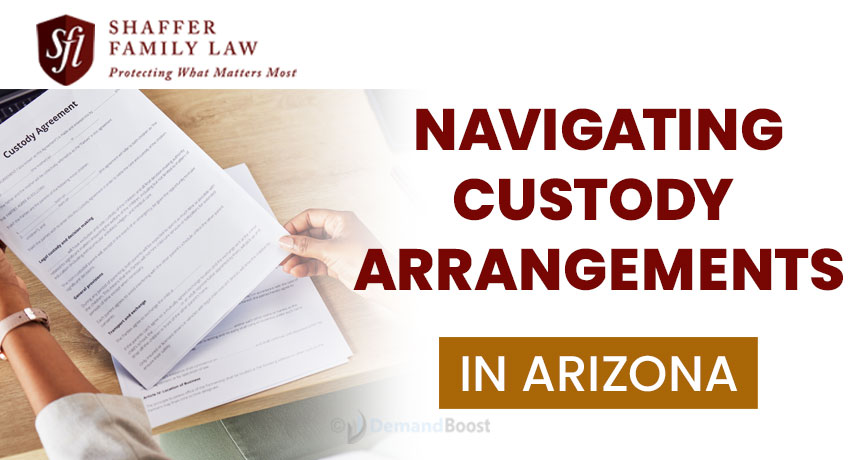Divorce brings many changes, but one thing remains constant—you are still a parent. As difficult as this transition may be, your presence and role in your child’s life remain as important as ever. Regardless of how your relationship ended, your child’s well-being should stay at the center of every decision you make moving forward.
Navigating custody arrangements in Arizona can feel overwhelming, especially when emotions are running high, and the future seems uncertain. However, understanding the process empowers you to make informed decisions that truly support your child’s best interests. Whenever possible, Arizona courts encourage parents to reach a custody agreement on their own. Reaching an agreement outside of court gives you more control over the outcome and can help reduce conflict during an already emotional time.
Knowledge is power—especially when navigating legal matters involving your child. That’s why having trusted support by your side is so important. At Shaffer Family Law in Arizona, we understand the complexities of custody cases and prioritize your child’s well-being while helping your family achieve stability and peace of mind.
Understanding Child Custody Arrangements in Arizona
- Types of Custody Arrangements: In Arizona, child custody is divided into two key areas: legal decision-making, which involves major decisions about the child’s education, healthcare, and other important matters, and parenting time, which determines where the child lives and outlines their daily schedule.
- Joint or Sole Legal Decision-Making: Parents can either share the authority to make important decisions for their child (joint), or one parent may be granted the exclusive right to decide (sole). In sole legal decision-making, although both parents can discuss important issues, the parent granted sole legal decision-making has the final authority if disagreements arise.
- Parenting Time: This refers to the schedule that determines when a child spends time with each parent. While children often live primarily with one parent, Arizona courts prioritize ensuring regular, meaningful, and ongoing contact with both parents—unless there are concerns for the child’s safety or well-being.
- Parenting Plan: When parents agree on custody arrangements, they can submit a parenting plan to the court that outlines legal decision-making, parenting time, holiday schedules, communication guidelines, and dispute-resolution methods. Once approved by a judge, the plan becomes a legally binding court order. Both parents must adhere to its terms, and failure to comply can lead to legal consequences.
Get Trusted Legal Help for Child Custody Matters at Shaffer Family Law
Divorce is challenging, and disagreements over parenting time, legal decision-making, or parenting plans can add significant stress. When parents can’t reach an agreement, the court will intervene and establish a plan focused on the child’s best interests. Factors considered include the child’s relationship with each parent, their adjustment at home and school, any history of abuse or domestic violence, and the child’s preferences if they are mature enough to express them.
Having an experienced attorney means you don’t have to carry the legal weight alone during this emotionally taxing time. At Shaffer Family Law, we’re committed to helping parents across Maricopa County and nearby areas secure custody arrangements that not only protect their parental rights but also place their child’s well-being at the heart of every decision. Whether through negotiation or litigation, we are dedicated to finding lasting solutions that support your family’s future. Call us at (480) 470-3030 or visit our website to schedule your appointment today.

